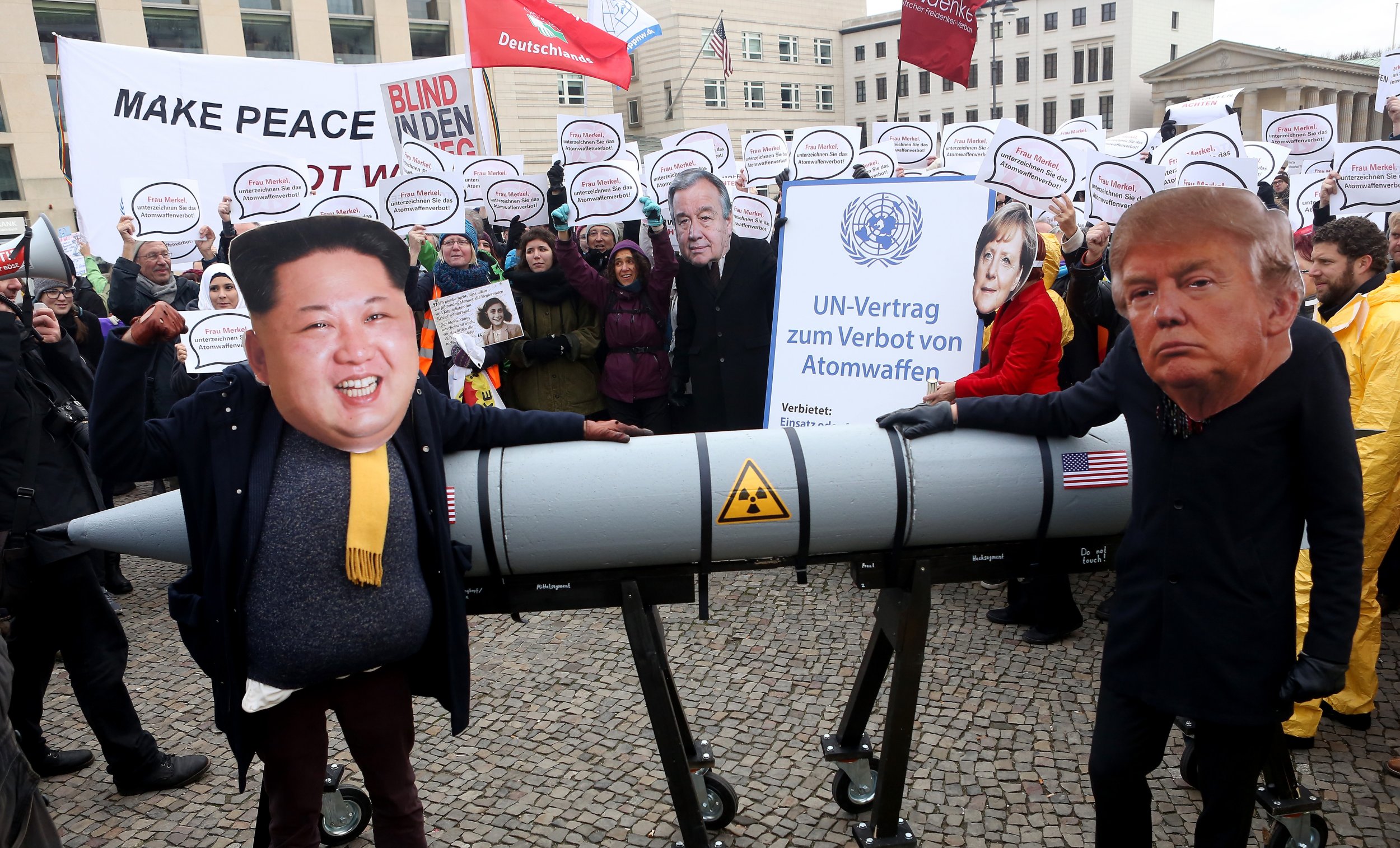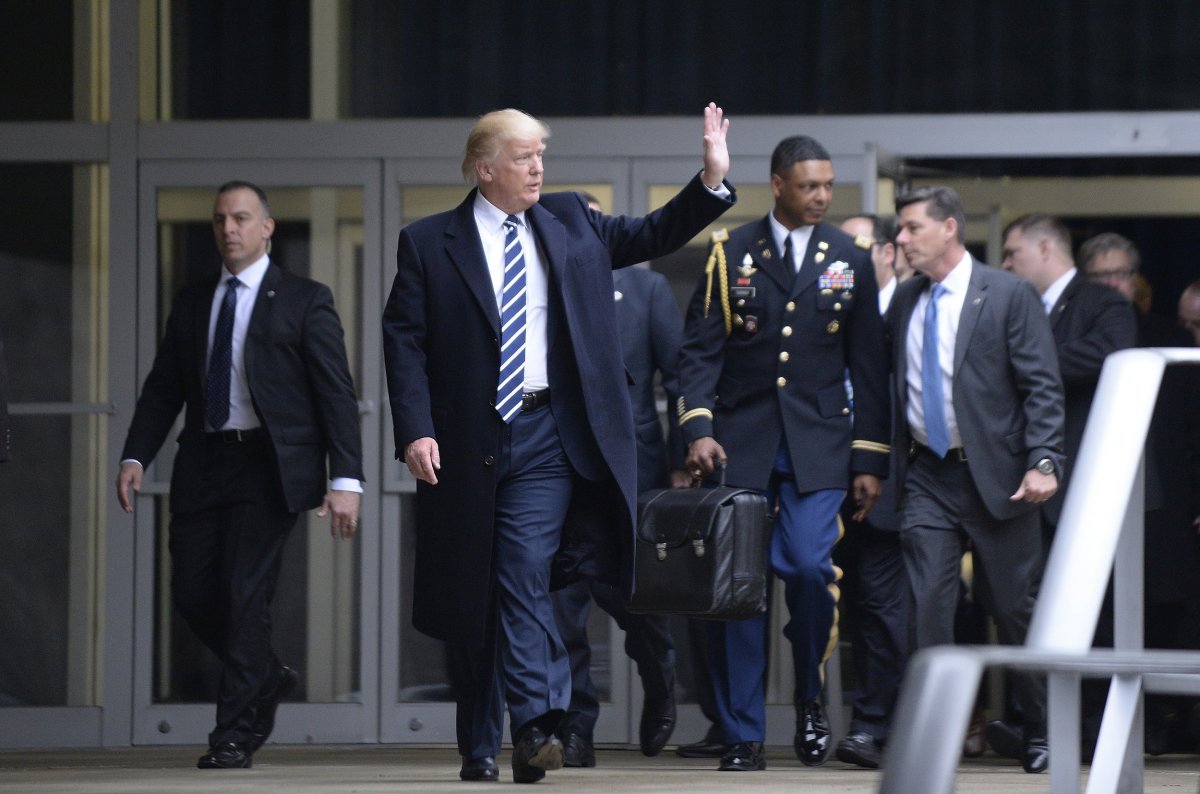
If President Donald Trump ordered a nuclear strike on another country, it would only take around five minutes for intercontinental ballistic missiles to launch.
As Joe Cirincione, the president of the Ploughshares Fund, recently told Vox, "The president can order a nuclear strike in about the time it takes to write a tweet."
Speaking of tweets, last week Trump took to Twitter to boast about the size of his "nuclear button" in response to threats from North Korean leader Kim Jong Un's New Year's address. Trump tweeted: "North Korean Leader Kim Jong Un just stated that the 'Nuclear Button is on his desk at all times' Will someone from his depleted and food starved regime please inform him that I too have a Nuclear Button, but it is a much bigger & more powerful one than his, and my Button works!"
North Korean Leader Kim Jong Un just stated that the “Nuclear Button is on his desk at all times.” Will someone from his depleted and food starved regime please inform him that I too have a Nuclear Button, but it is a much bigger & more powerful one than his, and my Button works!
— Donald J. Trump (@realDonaldTrump) January 3, 2018
Trump does not have a literal nuclear button on his desk, but it is true that the U.S. has a much larger nuclear arsenal than North Korea. The U.S. has roughly 6,800 nuclear weapons (with around 900 immediately available to launch), while Kim's regime is estimated to have around 60 at the most. The U.S. military also has far more advanced ballistic missile technology.
If Trump were to launch a nuclear attack, he would require what is known as the "nuclear football" (not a button), which is a 45-pound aluminum briefcase that's always by the president's side and carried by a member of the U.S. military. The football has instructions for how to go about launching a nuclear weapon, including how to contact military commanders to order the strike as well as details on potential targets.
The president has sole authority to launch a nuclear strike, but he does have the option to ask for advice in the process. This would likely occur in the Situation Room in the White House, unless the president were traveling, and then the discussion would occur via a secure phone line.

Hypothetically, Trump could launch a nuclear weapon regardless of whether or not the U.S. had been attacked first. This would be known as a first-use nuclear strike, or preemptive strike. Currently, there are efforts from Democrats in Congress to prevent the president from launching a preemptive nuclear strike without congressional approval. The current nuclear system is designed to bypass checks and balances so the president could rapidly respond to an imminent threat or attack. It's possible a military commander could determine a president's order to launch a nuclear strike is illegal, but there's no precedent for this, and it's hazy territory. Not to mention, the president could simply fire this person and replace him or her with someone who would follow orders.
If Trump ultimately decided to go forward with a nuclear attack, he would need to verify it with the senior officer in the Pentagon's war room to ensure the order was coming directly from the president. A challenge code, such as "Delta Echo," would be read to the president. Next, the president would be handed the "biscuit," a laminated card that, like the football, is always near the commander in chief. The biscuit contains information on how to respond to the challenge code.
The Pentagon would then broadcast an encoded message—roughly the length of a tweet—to missile crews, who would then take various steps to initiate the launch, including authenticating the order, opening safes, entering codes and turning keys. The process would not take particularly long, and the consequences could be absolutely devastating.
Uncommon Knowledge
Newsweek is committed to challenging conventional wisdom and finding connections in the search for common ground.
Newsweek is committed to challenging conventional wisdom and finding connections in the search for common ground.
About the writer
To read how Newsweek uses AI as a newsroom tool, Click here.








